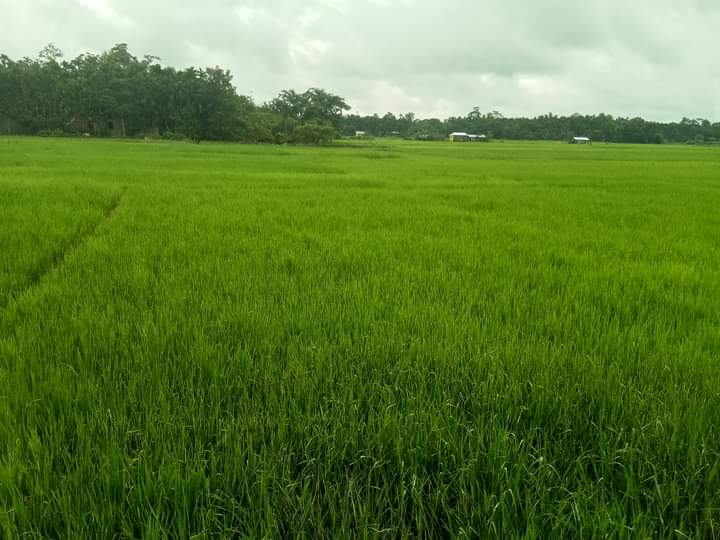Farmers are the backbone of India’s economy, and the National Democratic Alliance (NDA) Government has been making substantial efforts to empower them and boost agricultural productivity. Recognizing the crucial role that agriculture plays in sustaining the country’s economy, the government has introduced a series of initiatives aimed at ensuring a prosperous future for farmers across the nation.
One of the flagship programs under the government’s agricultural reforms is the Pradhan Mantri Krishi Sinchai Yojana (PMKSY). This scheme is designed to improve water accessibility and enhance irrigation facilities, ensuring that every farm has access to irrigation. The vision of PMKSY is encapsulated in the mantra “Per Drop More Crop,” promoting the use of efficient irrigation techniques that conserve water while maximizing crop yield. Modern irrigation methods, such as drip and sprinkler systems, are being promoted to help farmers make the most of limited water resources, thus significantly improving productivity.
In a bid to promote sustainable agriculture, the Paramparagat Krishi Vikas Yojana (PKVY) has been launched to encourage farmers to adopt organic farming practices. This initiative is especially focused on the North-Eastern Region, where the government has also launched a special scheme to promote organic farming and the export of organic produce. PKVY aims to enhance soil health and reduce dependency on chemical fertilizers, fostering a more environmentally friendly approach to farming.
Another innovative step towards sustainable agriculture is the Soil Health Card Scheme. The scheme is designed to assess the nutrient status of soil and provide tailored recommendations to farmers to improve soil health and crop productivity. By 2025, the government aims to issue soil health cards to all 14 crore agricultural holdings in India. The initiative involves the analysis of approximately 248 lakh soil samples in a three-year cycle, ensuring that farmers receive up-to-date information about their soil conditions.
The government has also introduced a new Urea Policy aimed at enhancing domestic production and energy efficiency. This policy is part of a broader effort to revive fertilizer plants in locations such as Gorakhpur, Barauni, and Talcher, which will contribute to India’s self-sufficiency in fertilizer production. This revival not only supports the availability of fertilizers but also boosts local employment and regional development.
In response to recent unseasonal rains and adverse weather conditions, the NDA Government has taken a proactive stance to support farmers. The eligibility criteria for input subsidies have been revised, allowing farmers to claim subsidies if 33% or more of their crop is damaged, down from the previous threshold of 50%. Additionally, the government has enhanced the quantum of financial assistance by 50% in cases of crop losses, ensuring that farmers are better protected against the vagaries of nature.
To mitigate price volatility of perishable agricultural commodities, the government has established a Price Stabilisation Fund with a corpus of Rs. 500 crores. This fund enables market interventions to stabilize prices, protecting both farmers and consumers from the negative effects of sudden price fluctuations. This initiative plays a critical role in ensuring that farmers receive fair prices for their produce, thereby contributing to their financial stability.
Electricity is a crucial component for modern agriculture, and the Deen Dayal Upadhyaya Gram Jyoti Yojana (DDUGJY) aims to provide uninterrupted power supply to rural areas by separating agricultural and non-agricultural feeders. This separation not only boosts agricultural productivity but also improves the overall quality of life in rural areas, including education and cottage industries.
On the international front, the government’s strong stance at the World Trade Organization (WTO) negotiations has secured long-term benefits for Indian farmers while ensuring national food security. Domestically, the Farm Credit Target has been significantly raised to Rs. 8.5 lakh crores, facilitating easier access to loans for farmers at concessional rates. This move ensures that farmers have the necessary financial support to invest in modern farming techniques and increase their productivity.
The government is also harnessing the power of technology to empower farmers. Through initiatives like the, farmers are receiving timely weather reports, information on fertilizers, and best practices for farming. Mobile governance in agriculture has been given a major boost, with over 550 crore SMS advisories and information being sent to about 1 crore farmers. This use of technology ensures that farmers are well-informed and can make data-driven decisions to enhance their agricultural practices.
The government has also launched various other initiatives to further empower farmers. The e-NAM (National Agriculture Market) platform is one such initiative, aimed at creating a unified national market for agricultural commodities. By facilitating online trading, e-NAM helps farmers get better prices for their produce.
Additionally, the Pradhan Mantri Fasal Bima Yojana (PMFBY) provides comprehensive insurance coverage for crop failure due to natural calamities, pests, and diseases. This scheme ensures that farmers are financially secure even in the face of adverse circumstances.

